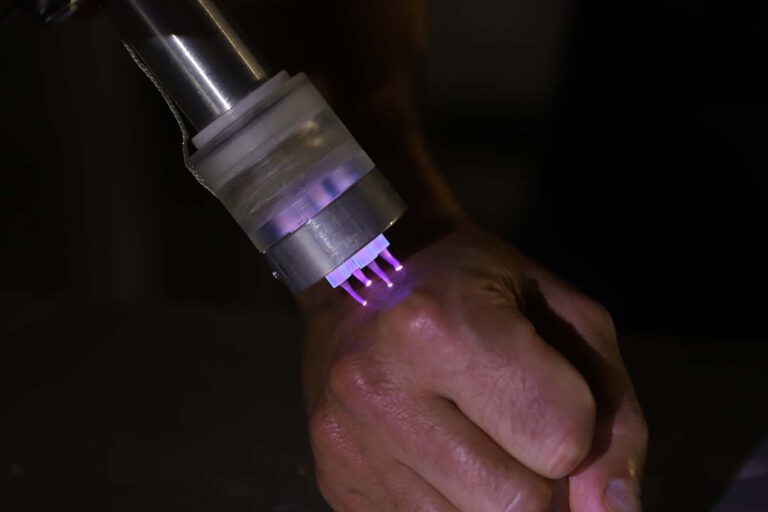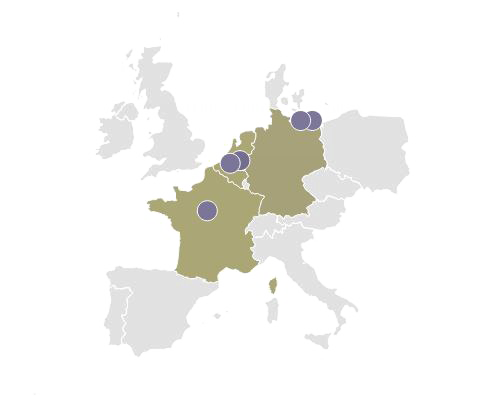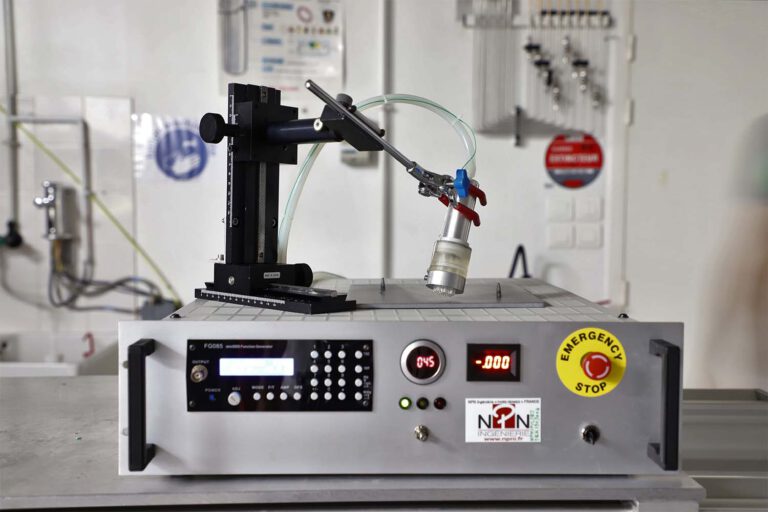Welcome to plasmact
Plasma against
Actinic Keratosis
Our mission is to explore the potential of medical gas plasma technology
in treating Actinic Keratosis, a common skin condition that can lead to skin cancer.

Did you know?
Did you know that actinic keratosis is a skin disease that affects millions of Europeans and makes them susceptible to invasive and deadly skin cancer?
Every second European has developed actinic keratosis by the age of 60. In Germany alone, the number of new cases is estimated at 20,000 per year.
PlasmACT is a Marie Skłodowska-Curie Doctoral Network coordinated by the Leibniz Institute for Plasma Research and Technology in Greifswald, Germany, in collaboration with four other academic partners:
University Medical Center Rostock, Germany,
Eindhoven University of Technology, The Netherlands,
Centre national de la recherche scientifique, France and
University of Antwerp, Belgium.
In addition to our partners, our project also includes eight associated industry partners and two NGOs.
Our mission is to explore the potential of medical gas plasma technology in treating Actinic Keratosis, a common skin condition that can lead to skin cancer.

Over the past decade, medical gas plasma technology has emerged as a promising tool in healthcare. Unlike traditional treatments for Actinic Keratosis, which can be painful, expensive, and not always effective, medical gas plasma offers a non-invasive, cost-effective, and potentially more efficient alternative. By operating at body temperature and causing minimal side effects, it presents a compelling option for both patients and healthcare providers.
Our primary objective in PlasmACT is to leverage state-of-the-art plasma multijet technology to advance the understanding and application of medical gas plasma therapy for Actinic Keratosis. This involves interdisciplinary collaboration between experts in physics, chemistry, biology, and medicine, who are committed to bridging the gap between academic research and practical healthcare solutions.

Through PlasmACT, we aim not only to make scientific advancements but also to cultivate a new generation of scientists capable of addressing complex healthcare challenges from both academic and commercial perspectives.
By fostering a dynamic, international environment that encourages collaboration and innovation, we strive to accelerate progress in the field of medical gas plasma technology and improve outcomes for patients with Actinic Keratosis and beyond.
The consortium has been initiated and is led by Sander Bekeschus at INP in Greifswald, Germany.


